Could Labour solve the cost-of-living crisis?
Keir Starmer unveils £29bn plan to freeze energy price cap
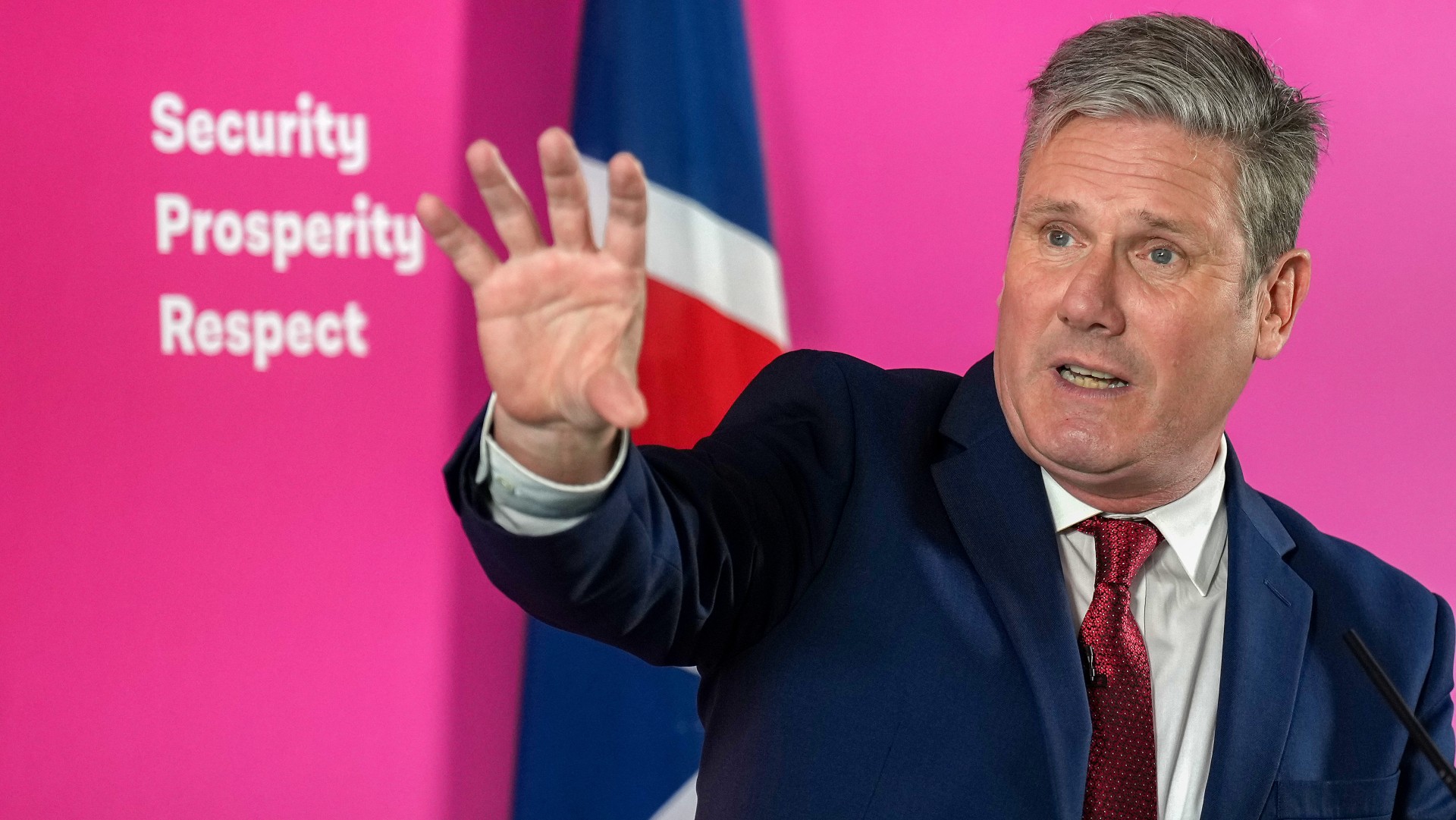
A free daily email with the biggest news stories of the day – and the best features from TheWeek.com
You are now subscribed
Your newsletter sign-up was successful
Energy bills should be frozen for six months to ensure that people across the UK do not “pay a penny more” for their gas and electricity this winter, Keir Starmer has argued.
Unveiling a £29bn proposal to help tackle the cost-of-living crisis, the Labour leader said that preventing expected price rises in October and January would save families an average of £1,000 each.
According to The Times, polling indicates a majority of the public are behind Labour’s plan, including three-quarters of Tory voters, “as ministers come under pressure to do more to address the ‘national emergency’ of living costs”.
The Week
Escape your echo chamber. Get the facts behind the news, plus analysis from multiple perspectives.

Sign up for The Week's Free Newsletters
From our morning news briefing to a weekly Good News Newsletter, get the best of The Week delivered directly to your inbox.
From our morning news briefing to a weekly Good News Newsletter, get the best of The Week delivered directly to your inbox.
What is Labour proposing?
At the heart of Labour’s plans is a freeze in the energy price cap funded by an extension to the so-called windfall tax on oil and gas companies, backdated to the start of this year.
This would see the price cap, which is forecast to hit £4,266 in January, remain at its current level of £1,971 a year for households until April 2023.
Starmer said this would save families hundreds of pounds while also helping bring down inflation by four percentage points. The latest forecasts from the Bank of England suggest inflation, which hit 9.4% in June, could peak at more than 13% later this year.
The cap freeze would be paid for by raising £8bn from an increased windfall tax on the soaring profits of oil and gas companies and scrapping the £400 energy rebate announced by the government for the autumn. A further £7bn would be saved by lowering government debt interest repayments through lower inflation. The Labour plan would also involve support for people not protected by the price cap, and a scheme to ensure people on prepayment meters do not have to pay more for their energy than people paying monthly.
A free daily email with the biggest news stories of the day – and the best features from TheWeek.com
Starmer also promised to reduce energy demand and lower bills in the long term by insulating 19 million homes over the next decade.
What has the reaction been?
Tory leadership frontrunner Liz Truss is putting tax cuts at the centre of her cost-of-living response, but a YouGov poll of almost 1,800 adults for The Times “suggests a public appetite for more radical measures”, said the paper. Only one in eight respondents said they “could afford rising energy bills without reducing their standard of living”.
Charities including the Salvation Army have warned that children will go hungry if ministers do not increase their existing support package to cover rising energy bills.
With Labour’s plans receiving positive reactions on the front pages of the Daily Mirror, i paper and the widely read commuter paper Metro, Politico said: “It’s a rare moment of breakthrough for Starmer.”
The Guardian reported that his announcement was “welcomed” by the Liberal Democrats. And the left-leaning Institute for Public Policy Research (IPPR) think-tank backed the twin arguments that a price freeze funded by a windfall tax would “prevent soaring energy bills from pushing millions into debt and destitution, and hold down ever rising inflation which is a risk to the UK’s economic stability”.
What do the critics say?
With support for a cap freeze widespread, critics of Labour’s plans have instead focused on how the plan would be paid for, and what would happen once the six-month freeze ends next April.
Paul Johnson, director of the Institute for Fiscal Studies, told The Telegraph that the £7.2bn saving on interest payments on national debt was an “illusion” as inflation would increase unless the huge subsidies remained permanent beyond six months.
Allies of Tory leadership contender Truss reportedly issued a similar warning that “any freeze has to come to an end”. Dismissing Starmer’s plans as a “sticking plaster” solution that is “not a substitute for a more consistent policy”, an unnamed ministerial ally cited the failure of freezes in the 1970s to ultimately keep prices or inflation down.
Other critics of Labour’s proposals claim it would mean big handouts to wealthy voters, with Professor Richard Murphy, of Tax Research UK, warning that they included £10bn of subsidies to the richest 20% of UK households.
However, Labour Party sources have argued that bills are rising so much there are now relatively few families who will not need help.
Those “worried about huge state spending will argue the plan opens the door to continually subsidising profit-making energy firms, with no end in sight”, said The Mirror, while “those on the left meanwhile will ask why [Starmer] hasn’t gone the whole hog and re-nationalised the industry”, as suggested by former prime minister Gordon Brown last week.
-
 Switzerland could vote to cap its population
Switzerland could vote to cap its populationUnder the Radar Swiss People’s Party proposes referendum on radical anti-immigration measure to limit residents to 10 million
-
 Political cartoons for February 15
Political cartoons for February 15Cartoons Sunday's political cartoons include political ventriloquism, Europe in the middle, and more
-
 The broken water companies failing England and Wales
The broken water companies failing England and WalesExplainer With rising bills, deteriorating river health and a lack of investment, regulators face an uphill battle to stabilise the industry
-
 Energy prices set to rise in October – how to reduce your gas and electricity bill
Energy prices set to rise in October – how to reduce your gas and electricity billThe Explainer With the price cap expected to rise before this winter, what is the best way to prepare, and lower costs?
-
 The taxes Labour could raise to plug spending shortfalls
The taxes Labour could raise to plug spending shortfallsThe Explainer Chancellor Rachel Reeves has warned Labour inherited a 'black hole' spending gap from the Tories
-
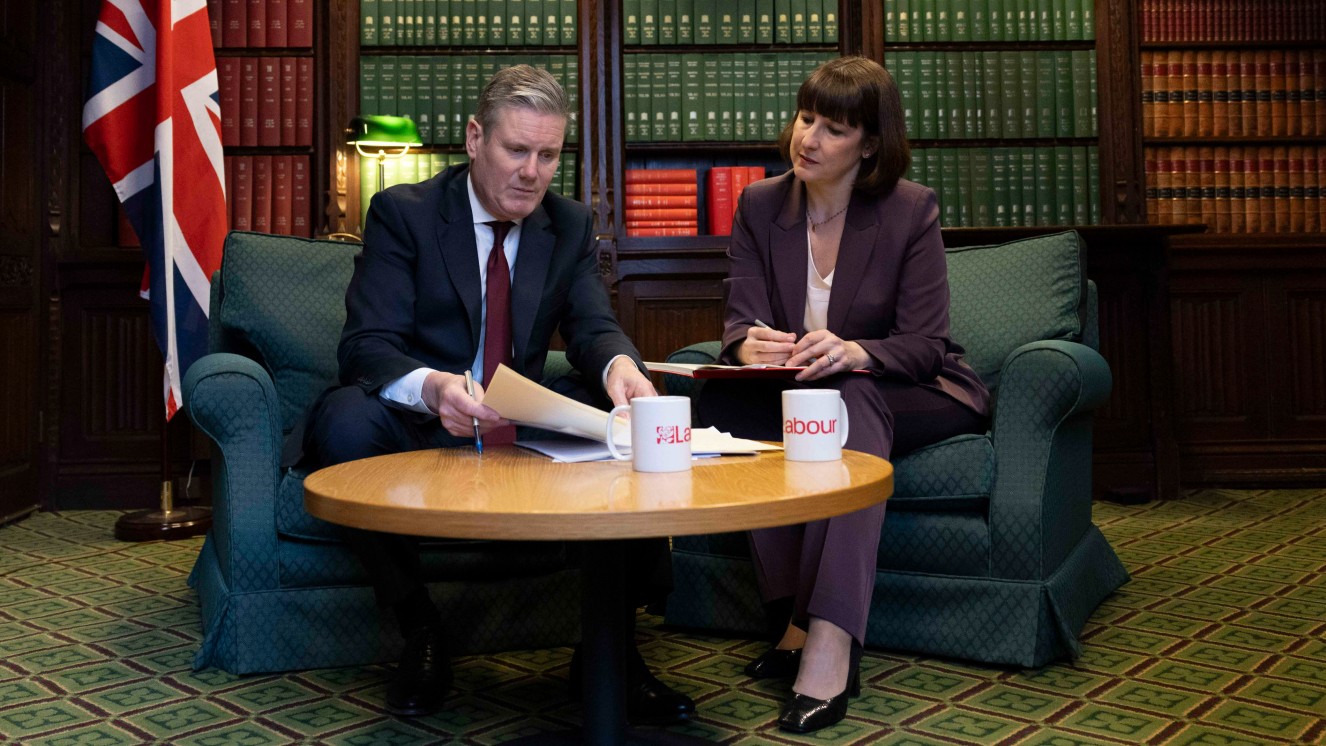 Labour vs. Tories: which party will raise taxes the most?
Labour vs. Tories: which party will raise taxes the most?The Explainer What do the two main parties' manifestos say about their tax plans? And do their sums add up?
-
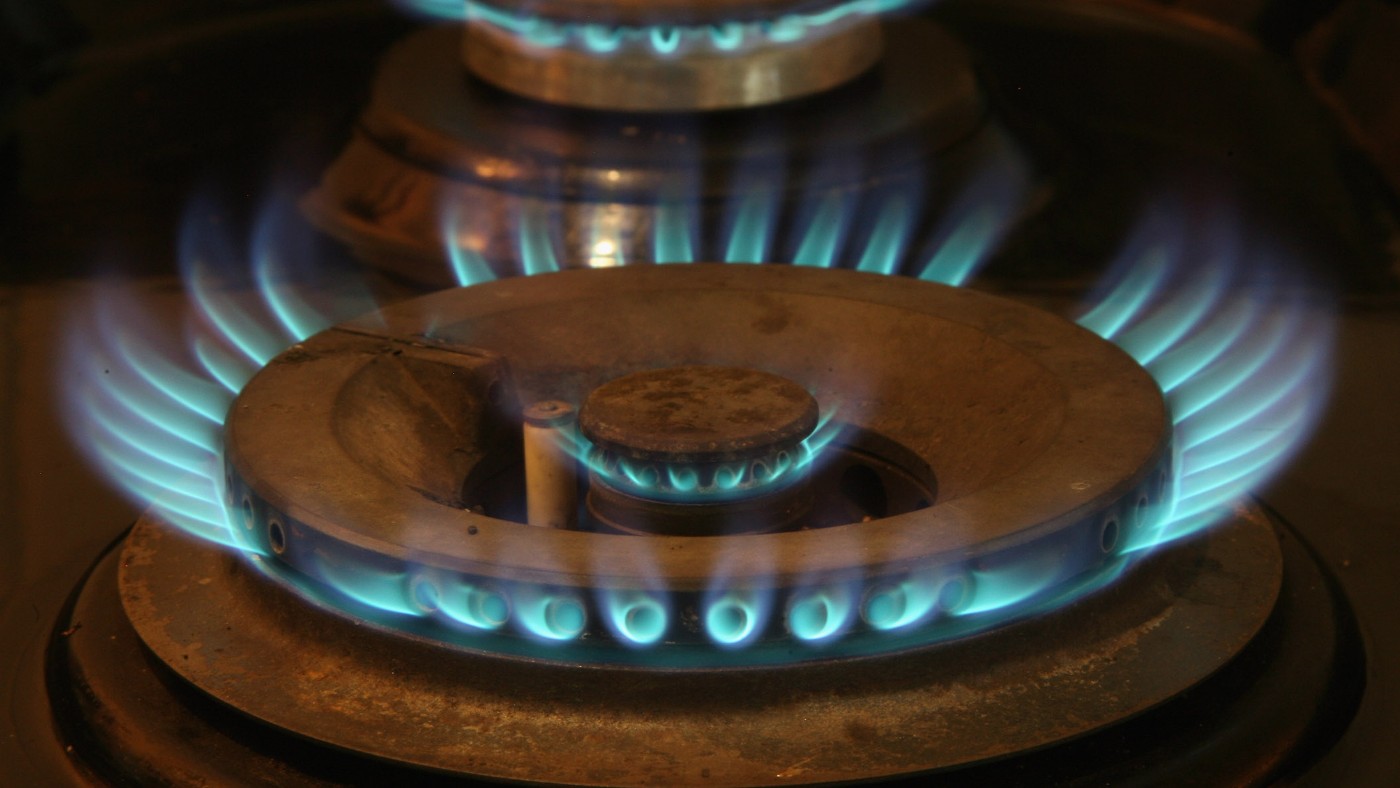 Should the Ofgem energy price cap be scrapped?
Should the Ofgem energy price cap be scrapped?Today's Big Question Poorer households may end up paying more this winter despite cap being lowered from October
-
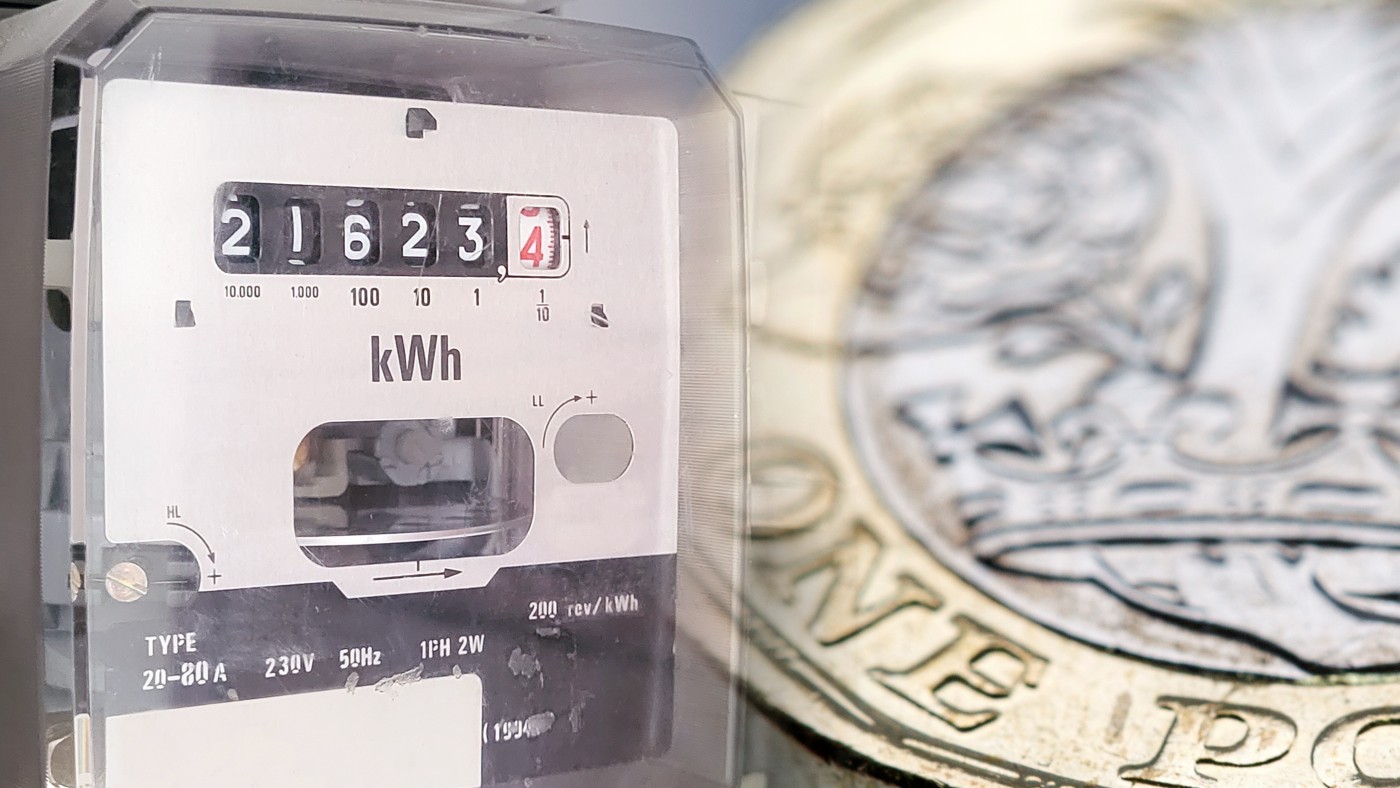 Cost of living: will fall in energy price cap make a difference?
Cost of living: will fall in energy price cap make a difference?In Depth Limit on what providers can charge falls but consumers are warned they will see ‘little relief’
-
 What is the cheapest way to cook?
What is the cheapest way to cook?feature Air fryers, microwaves and slow cookers can all save you money over conventional ovens
-
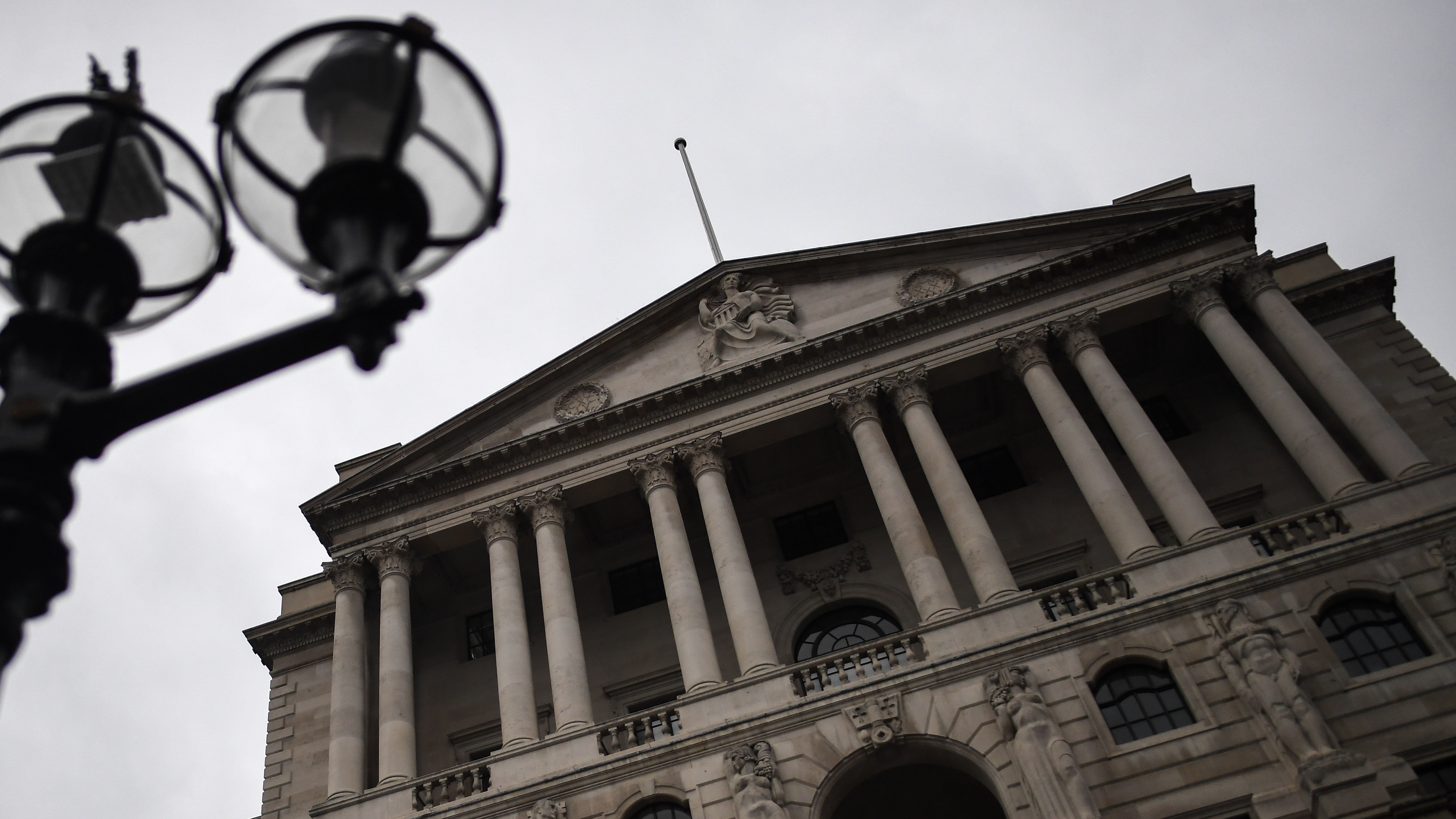 Are UK pensions safe?
Are UK pensions safe?Today's Big Question Bank of England governor says its debt market support must end – but the multi-billion-pound scheme could be extended
-
 Is it cheaper to work from home or at the office?
Is it cheaper to work from home or at the office?Talking Point Commuting costs may wipe out savings made from lower domestic energy bills